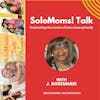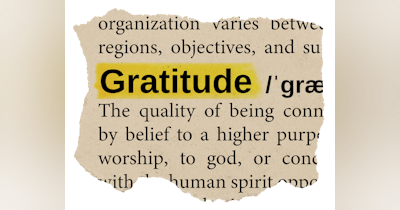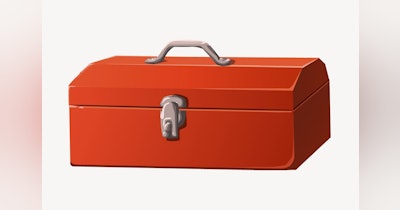Save
Are you a solo mom living paycheck to paycheck? Why?
Stories abound about the financial hardships solo moms face. Yes, it may be difficult to manage our finances when we are raising children alone. But there are many strategies we can use that can alleviate some of the hardships we encounter, juggling the bills with one income.
I’ve outlined three such strategies below for solo moms living paycheck to paycheck.
1. STOP THE TAX REFUND

You receive a refund after you have calculated how much taxes you owe, and make adjustments for any exemptions and other methods, to reduce your taxes owed. The remaining balance is money you overpaid that accumulated throughout the tax year.
But what could you who are living paycheck to paycheck do with that money, instead of providing an interest free loan to the government? Let’s say you have a tax refund of $3,000. If you divide that by 12 that’s approximately $250 extra per month that you could have had at your disposal. Doesn’t sound like much but it adds up. Now, this example is general but it gives you an idea of what is happening.
Fun Tip #1
Solo moms living paycheck to paycheck can use the extra $250 to:
- start a savings account
- Pay down debt
- Buy what your family needs with cash instead of on credit
It’s true that some people might use their tax refund to make annual lump sum payments on debt (mortgage, student loan, etc.). But those people might have a strategy, and the discipline to make that work for them. If they do, then hats off to them. Because even though they may be lending out their money tax free for 12 months, if that’s the way they can get a handle on their finances, then I think that’s fine. Something is better than nothing. But imagine the amount of interest that accumulates on those debts over the 12 months you waited?
Click to download my FREE Financial Checklist tip sheet.
Please get a handle on your finances. The whole premise of what I teach is to live consciously. That includes making conscious decisions about your treasure. Paying only the minimum lawfully allowed income tax, is one way.
Ending up rich starts with paying yourself first.
Tony Robbins, Money: Master The Game
2. TRACK EXPENSES
If you don’t know where you are, its very difficult to map a course for where you are going. Tracking expenses give you a picture of what you are spending money on. Financial advisers tell you to set up a budget first. But I’m of the
Refrigerator
opinion that tracking where your money goes is ground zero for starting good money management habits. Start today to stop living paycheck to paycheck, by keeping receipts for everything you buy.
Fun Tip #2
One way to avoid clutter and lost receipts is to take a picture of the receipt with your phone and create an album called “receipts” in your photo folder. You can sort through these later. Once per month or more often if you have the time, sit down and tally up how much you spent and what you spent it on. In other words, categorize your spending. Some banks let you track spending within your checking account.
Now you have a picture of where those hard earned dollars are going and can make adjustments where you feel you need to.
(Below is a YouTube video of Dave Ramsey expressing his thoughts on personal finance…it’s a rant!!!). If you are living paycheck to paycheck, this may just be the perspective you need to cut or reduce some expenses, so you can enjoy more of what you earn.
https://youtu.be/k3291ar1tpY
3. START AND FUND AN EMERGENCY FUND
A January 2019 Bankrate survey states that most Americans couldn’t find $1,000 to cover an emergency. That’s very disturbing when you think that the risk for an emergency happens every day. If you own an automobile, you will need to replace tires, oil or God forbid the engine because you neglected to change the oil, among other things. If you own your home, stuff always need updating or replacing. For a solo mom living paycheck to paycheck, the need for unexpected, major repairs or replacements, could spell financial disaster.
These every day occurrences should not be touted as emergencies because they should be expected to happen. It’s not about expecting the worst. It’s about preparing for the inevitable. And yes, it is inevitable that you will wear out your tires. It is also inevitable that your central air, heating system or roof will need fixing at some point.

Turning to a credit card or worse — having debt collectors call you because you can’t handle out-of-pocket medical expense, just exacerbate the problem.
Fun Tip #3
Just simply put a small amount away each paycheck. Yes. I get it. Even a small amount is hard to find. But if you do #1 and #2 above you should be able to find a little bit to sock away each paycheck.
- Make it automatic. Have it automatically withdrawn from your paycheck before you even see it.
- Keep it hidden from view when you access your checking account but do keep it easily accessible. This is not money you would put in a money market account unless you end up with excess cash. It’s not very easy to get money out of a money market account in a real emergency, if you need to get your hands on the money pronto.
Hopefully these tips will help you to reinforce the New Year’s resolution you made to do better with your finances. They are not new but I’m hoping the reminder helps you to make more conscious decisions about your money.
You work hard. When you get your paycheck it should feel like a blessing. It shouldn’t feel like you were given one more problem to deal with — trying to figure out how to make it last. Hope this was helpful and you can begin to stop living paycheck to paycheck.
Resources: The Total Money Makeover by Dave Ramsey. The Millionaire Next Door by Thomas J. Stanley. Also: Mint.com
__












